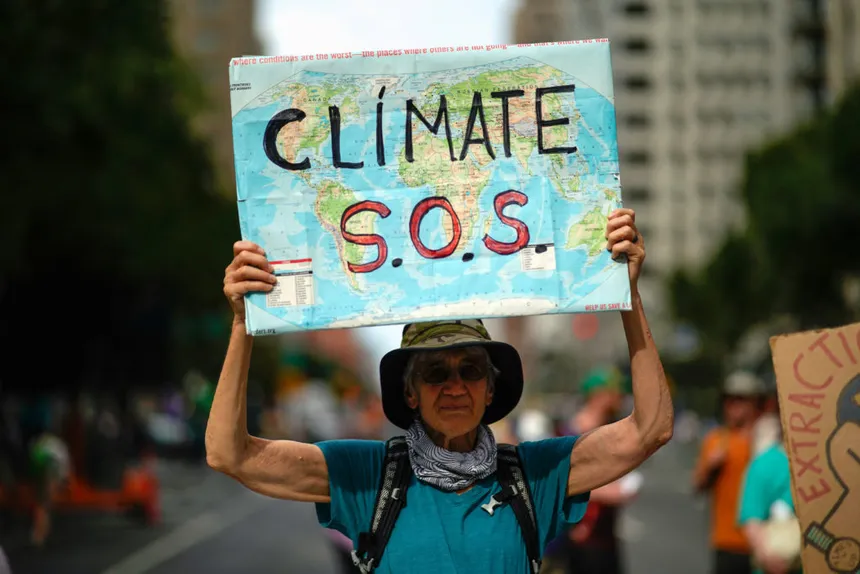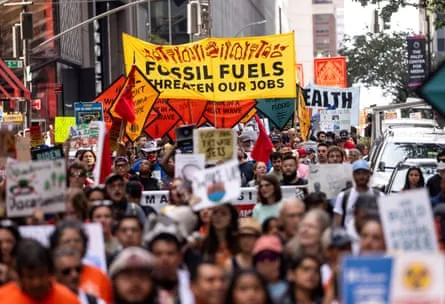The emissions generated by the world’s leading fossil fuel companies could lead to millions of excess heat-related deaths before the end of the century, according to a recent analysis by Global Witness. The study found that the combined emissions from oil produced by Shell, BP, TotalEnergies, ExxonMobil, and Chevron up to 2050 could result in a staggering 11.5 million excess deaths from heat by 2100.
“We cannot leave it up to the supermajors to change course quickly, the death toll will be comparable to some of history’s most brutal wars,” said Sarah Biermann Becker, senior investigator at Global Witness. “Governments need to step in, mitigate the impact of extreme heat, and urgently ramp up the transition away from fossil fuels.”
The analysis used the mortality cost of carbon model devised by academics at Columbia University and used by Oxfam, which calculates that in a high emissions scenario, there will be 226 excess heat deaths worldwide for every million tonnes of carbon released. The study then factored in projected emissions from fossil fuels produced by the oil firms, which together would add 51 billion tonnes of carbon dioxide emissions to the atmosphere by 2050. This would lead to 11.5 million excess heat deaths by the end of the century.
However, if the world manages a lower emissions scenario, reaching net zero globally by 2050, excess deaths associated with the companies’ production would come to about 5.5 million people. The difference highlights the urgent need for drastic action to reduce fossil fuel extraction and transition to renewable energy sources.
Intense and deadly heatwaves have already hit almost every continent, sparking wildfires and causing hundreds of thousands of excess deaths. Heat often hits the poorest and most vulnerable members of society hardest, with the homeless, those who work outside, and the elderly most at risk.

Experts point out that heat deaths will be just one result of a failure to rapidly transition away from fossil fuels, alongside other disasters such as food shortages, flooding, and political and economic turmoil. The big oil corporations continue to invest billions in new oil and gas reserves, weakening their climate pledges.
In response to the analysis, TotalEnergies said it was continuing to invest in new oil projects to offset the “natural decline” in existing production. BP and Shell emphasized their investments in renewable and low-carbon energy, but questioned the methodology used in the analysis. ExxonMobil and Chevron did not respond to requests for comment.
As the planet continues to heat up, experts stress the need to protect the most vulnerable. “We’re already seeing the impacts of heat stress on workers around the world, particularly on people in outdoor or heavy-duty industries such as agriculture and construction,” said Shouro Dasgupta, an environmental economist at the Euro-Mediterranean Center on Climate Change. “This will likely get much worse as the planet continues to heat up. We need labor protection policies that are tailored to local needs rather than a one-size-fits-all approach.”
The report highlights the urgent need for governments to take action to mitigate the impact of extreme heat and transition away from fossil fuels. Unless drastic measures are taken, the death toll from heat-related deaths could become one of the deadliest consequences of climate change, surpassing the devastating impact of wars and disasters.

